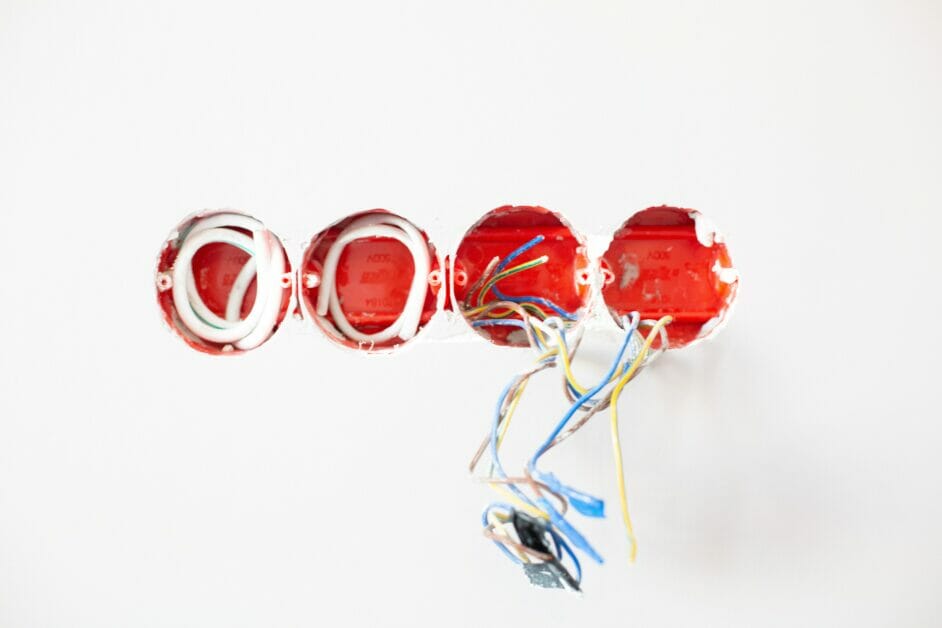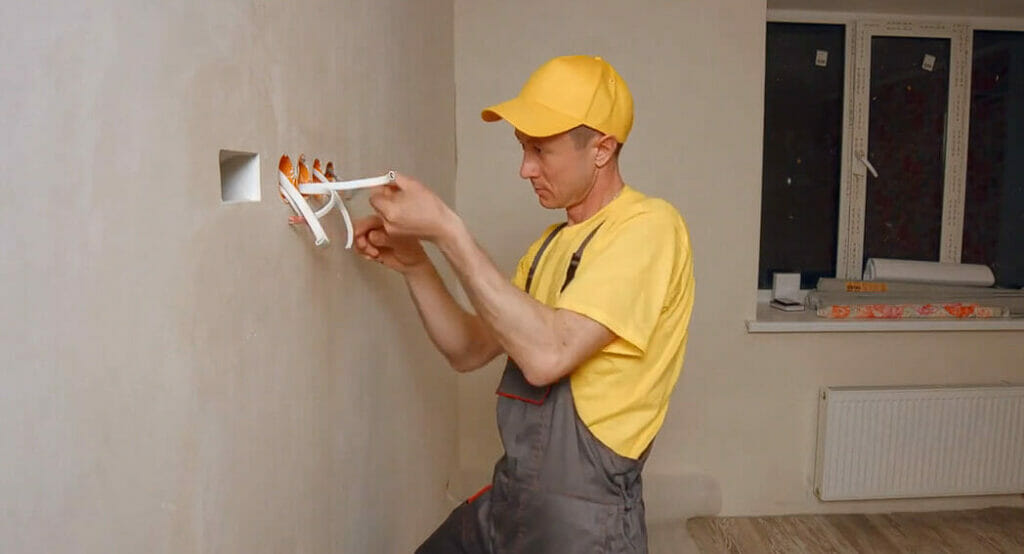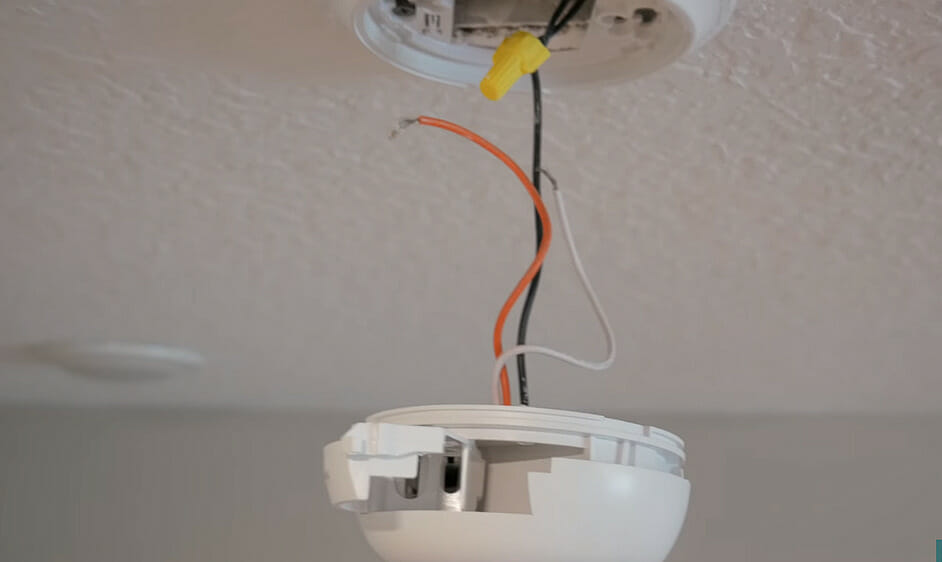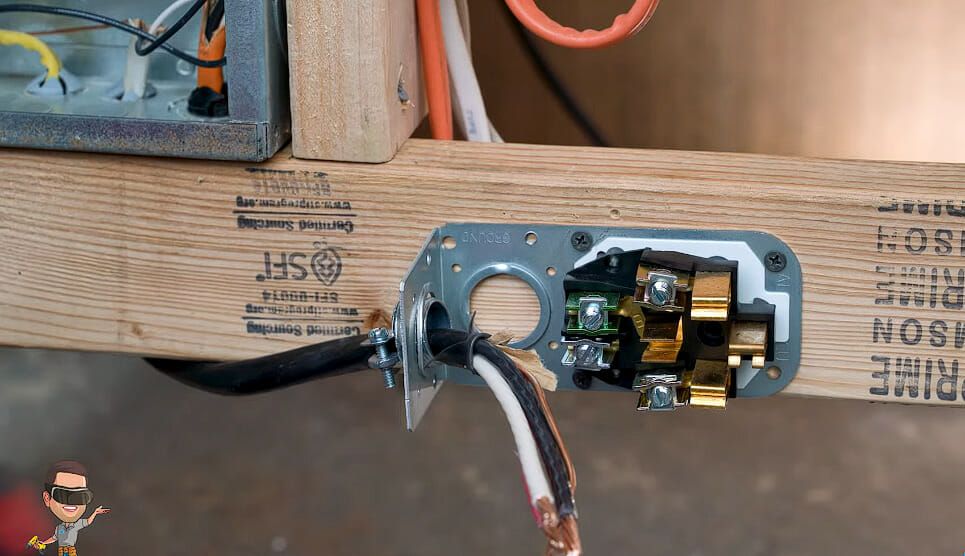What Does Hard-wired Mean (Term & Role)

“Hard-wired”; at a glance, it might sound like something from an old-school electronics manual. However, hard wiring is deeply ingrained in our everyday appliances and systems.
Hard-wired refers to a direct, fixed link between an electrical device and the power source. Offering stability and reliability, hard wiring is integral to many everyday appliances. It plays a pivotal role in electrical systems, ensuring consistent power supply.
Below, I will take a deep dive into this topic.
Understanding the Basics of Hard-wired

Definition and explanation of “hard-wired”
Imagine a connection that’s as permanent as it gets. Hard wiring is a direct, uninterrupted, fixed link between an electrical device and the power source.
Picture your oven or dishwasher at home. They’re typically ‘hard-wired,’ meaning their electrical connections are solid, sturdy, and steadfast. No plug-ins, no moving around – it’s there to stay!
Hard-wired also indicates a built-in functionality in any system. Think of it like your hand connected to your arm. It’s a constant, dependable, and integrated aspect of the bigger system.
Hard-wired systems form the backbone of many daily electrical appliances and setups.
Components and Characteristics of Hard-wired

Physical Aspects of Hard-wired Systems
There’s something incredibly satisfying about the physicality of hard-wired systems. They consist of cables, wires, and connectors arranged concretely and permanently.
Unlike plug-in devices, these systems are integrated directly into the electrical system of a building or machine, forming a solid, immovable connection.
The wires in a hard-wired system can carry electricity from the power source to the device, often through a circuit breaker or fuse box.
Various types of connectors join these wires together, making a closed circuit. It’s an orchestra of elements working together to ensure your device gets power most reliably!
Functional characteristics of hard-wired systems
Hard-wired systems aren’t just about physical connections – they’ve got functional prowess too! One of the key features of these systems is their reliability.
Because they’re directly connected to the power source, there’s less risk of disconnection or interference. It’s like your home’s plumbing. Turn the faucet, and water flows every time.
They also offer a degree of safety. With a hard-wired system, you minimize the risk of loose connections and potential electrical fires.
Plus, with their setup typically hidden away in walls or conduits, there’s less chance for accidental damage.
However, the lack of flexibility is a trade-off – modifications can be more time-consuming and challenging than in more flexible systems.
The Role of Hard Wiring in Electrical Engineering

Applications of Hard-wiring in Different Electrical Systems
| System | Role of Hard Wiring |
|---|---|
| Home Appliances | Provides reliable and safe power supply for devices like ovens, dishwashers, HVAC systems |
| Building Electrical Systems | Integral for lighting, power supply, and other electrical needs |
| Computing | Essential for motherboard operations, where components can’t be reprogrammed |
| Industrial Machinery | Ensures consistent operation of machinery requiring a stable power supply |
How Hard-Wiring Contributes to System Reliability and Stability
One word sums up why we love hard wiring: reliability. When a system is hard-wired, it’s a stalwart companion that is always there when you need it.
Its direct connection means there’s less that can go wrong – no lost chargers, no wiggly plug-ins. It’s all about peace of mind.
And then there’s stability. As mentioned, hard-wired systems offer a steady, unwavering supply of power.
This is especially crucial for devices where consistency matters, like an HVAC system that keeps a building at just the right temperature.
When delivering a solid, stable connection, hard-wiring stands head and shoulders above the rest!
Pros and Cons of Hard-Wiring
As with any choice, hard-wiring comes with both advantages and disadvantages. Let’s delve into them below:
Advantages
- Reliability: With a direct, uninterrupted, and steadfast connection, hard-wired systems are dependable. You don’t have to worry about losing power due to loose connections or faulty plug-ins.
- Safety: Hard-wired systems minimize the risk of loose connections, which can spark electrical fires. Also, these systems are usually installed in a way that minimizes accidental damage.
- Efficiency: By connecting directly to the power source, hard-wired systems ensure an efficient power transfer with minimal loss.
Disadvantages
- Difficulty in Alteration: Once installed, hard-wired systems are not easily altered. Adjusting the hard-wired setup may require considerable work and cost if your power needs to change or you need to move the appliance or system.
- Potential Cost: A hard-wired system may be more expensive than a plug-in system, as it often requires professional installation to ensure safety and proper operation.
- Lack of Flexibility: Hard-wired systems don’t easily allow relocation of the devices or appliances they serve. For example, if you want to rearrange your kitchen appliances, you’ll need to consider the implications of moving a hard-wired oven or dishwasher.
While hard wiring has some potential drawbacks, its reliability, safety, and efficiency make it a worthwhile consideration for many applications. As always, the best choice depends on your specific circumstances and needs.
References
Organizations:
- Institute of Electrical and Electronics Engineers (IEEE). https://www.ieee.org/
- National Electrical Manufacturers Association (NEMA). https://www.nema.org/
Websites:
- Electrical Safety Foundation International (ESFI). https://www.esfi.org/
- HomeTips. https://www.hometips.com/
Video References
Homeguideinfo
Handz for Hire
TVE
